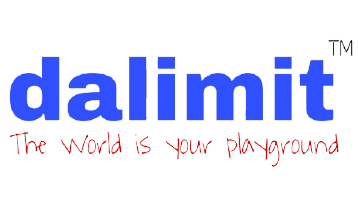
Overview of Lithuania Work Permit
Lithuania offers work permits for foreign nationals who wish to work in the country. This process is designed to regulate labor migration and ensure that job opportunities are available to local citizens while still attracting skilled workers from abroad. The Lithuanian government aims to balance the needs of the local labor market with the demand for specialized skills that may not be readily available within the country.
Each type of work permit has its own eligibility criteria, application processes, and documentation requirements. This structured approach not only helps manage the labor market effectively but also ensures that Lithuania remains an attractive destination for skilled workers, contributing to the country’s economic growth and development.
Types of Work Permits
- Temporary Work Permit: Generally issued for specific job positions and is valid for up to one year, with the possibility of renewal.
- Seasonal Work Permit: Designed for temporary work, often in agriculture or tourism, typically valid for up to six months.
- EU Blue Card: For highly skilled professionals from non-EU countries, offering benefits like family reunification and residency in other EU countries.
- Intra-Company Transfer Permit: For employees transferred within the same company to a Lithuanian branch.
Step-by-Step Application Process
- Job Offer: Secure a job offer from a Lithuanian employer who is willing to sponsor your work permit application.
- Employer’s Responsibility: The employer must submit a work permit application to the Lithuanian Migration Department. They need to demonstrate that no suitable local candidate was found for the position.
- Documentation Required:
- A valid passport
- A completed application form
- A copy of the job offer
- Educational and professional qualifications
- Health insurance documentation
- Proof of no criminal record (if required)
- Processing Time: The application process can take between 1 to 3 months. Employers can typically check the status of the application.
- Visa Application: If the work permit is approved and you are a non-EU/EEA citizen, you may need to apply for a national visa (D visa) to enter Lithuania.
- Residence Permit: If you plan to work in Lithuania for more than a year, you might also need to apply for a temporary residence permit.
Key Advantages
- Economic Opportunities: Lithuania has a growing economy with strong demand for skilled workers in sectors like IT, finance, and engineering.
- Access to EU Market: As an EU member state, Lithuania provides access to a larger labor market and the opportunity to travel and work across Europe.
- Cultural Experience: Living in Lithuania allows you to experience a unique blend of historical and modern culture.
- Affordable Living: The cost of living is generally lower than in many Western European countries, making it easier to maintain a comfortable lifestyle.
- Quality of Life: The country offers a high quality of life, with good healthcare and education systems, along with numerous recreational activities.
Challenges
While there are many advantages, there are also some challenges to consider:
- Language Barrier: Lithuanian is the official language, and while many people speak English, especially in urban areas, it may be beneficial to learn the local language for daily interactions.
- Bureaucratic Processes: The application process can be complex and may require careful attention to detail, especially regarding documentation.
- Cultural Adaptation: Adjusting to a new culture and environment can take time, and some expatriates may experience culture shock.
Conclusion
Obtaining a work permit in Lithuania offers a pathway to exciting career opportunities in a vibrant and growing economy. The country’s advantages, such as its EU membership, quality of life, and welcoming atmosphere for expatriates. Make it an attractive destination for skilled workers. While there may be challenges in the application process and cultural adaptation. The potential benefits and experiences of living and working in Lithuania are significant. For those considering this opportunity, thorough preparation and understanding of the requirements will be key to a successful transition.
“For more assistance, please connect with us.” +91 8401053740
